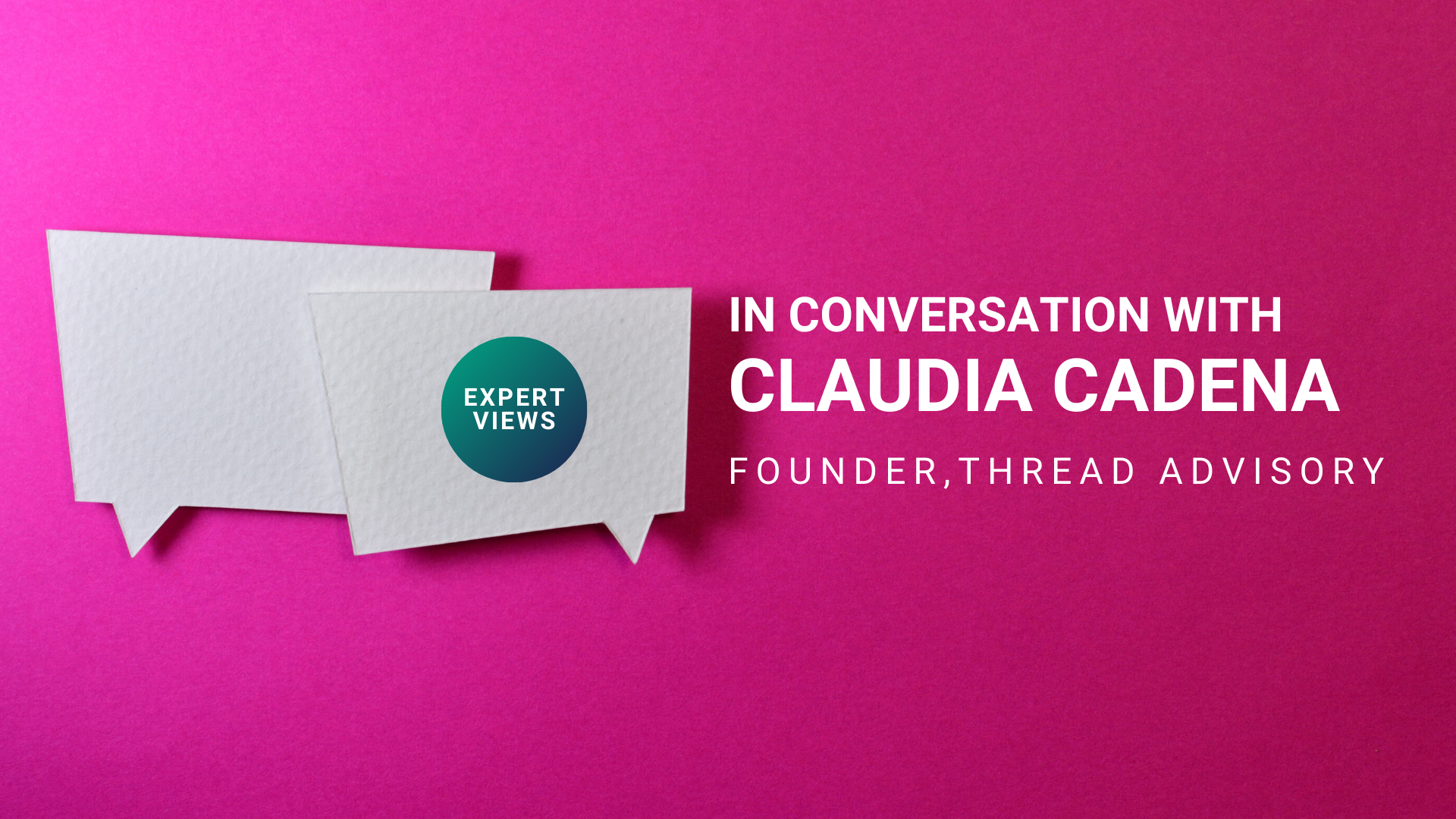As Malaysia braces for the reopening of the economy, SMEs nationwide are poised to attract consumers again. With long-term shifts towards digitisation and e-commerce, supply chain diversification and contactless deliveries, are businesses agile enough to adapt to the new normal? We sat down with Claudia Cadena, Founder and Principal Consultant of Thread Advisory to gather her thoughts on how brands are coping in these current times and what they can do to adapt to the new normal.
Engage SEA: From your observation, how have brands been innovating to cope with this pandemic crisis and market disruption?
Claudia Cadena, Thread Advisory: Many organisations have taken decisive action that has demonstrated how in times of crisis, the balance and focus on the aspects and stakeholders that matter most to their success and survival i.e. profits, customers and employees is temporarily shifted.
Those who have enjoyed continued success and profitability have now the ability to allocate some of the resources towards being part of the solution to the pandemic, i.e. through the repurposing of a production line towards making PPE, or the donation of their products to those who may need them the most, or the volunteering of employees to support the most vulnerable in society.
Engage SEA: What about organisations who may not be in a positive financial position?
Claudia Cadena: There are organisations who may not be in a positive financial position that enables them to make tangible contributions to the pandemic, but they take decisive action towards protecting the livelihood of their own employees. This is done by maintaining the same compensation levels, with some minor modifications or reductions to packages, mostly on allowances and earnings that directly relate to efforts that are currently not taking place. It is a sacrifice that has long-term impact as the organisation is depleted of cash at a time when no substantive income may be generated.
Leaders need to think innovatively, beyond what is good or right to drive profitability and market share in the short term
Vulnerable customers can be prioritised through innovations on how products and services are delivered or made available to them. Organisations are absorbing the transportation cost or are partnering with community driven organisations or government institutions to work towards ensuring that nobody is left unattended in times of need.
All of these examples require that leaders think innovatively and beyond what is good or right to drive profitability and market share in the short term. These efforts however, can be seen as the way in which organisations demonstrate that they are responsible citizens with a balanced purpose of making profits and impacting the community in a positive manner when it matters the most.
Engage SEA: Consumer trends are evolving throughout this period. In your opinion, is this temporary or would this impact SMEs as the economy reopens?
Claudia Cadena: The pandemic has driven consumers to think differently about how to procure products and services and what the priorities for consumption are. At the same time, we see how the evolution of the pandemic and unavailability of a vaccine will impose middle to long-term restrictions on the way all of us will need to interact with each other and go about our daily lives. Unless a cure is available, consumers and organisations will be required to adapt to the “new normal”.
Engage SEA: How do you think SMEs will adapt to the new normal in comparison to larger organisations?
Claudia Cadena: Large organisations may be able to weather the situation and deploy resources (i.e. money, time, effort etc.) to adapt and transform their operations in order to respond adequately to the situation. However, SMEs have tangible challenges in being able to respond as effectively to the “new normal”.
SMEs are at the heart of the economy not only as a producer of goods and services, but also as a significant employer. There is an evident need for the government to think about strategies and plans to provide tangible support, financial or operational, for SMEs to adapt (for some) and survive (for others). Perhaps this is an opportunity to review potential mergers and acquisitions between SMEs to become stronger, and stable drivers of the economy. They however need help, as in many cases, what drives them is profitability, instead of process and scale.
Furthermore, many startups with innovative products and services may suffer the same fate as the SMEs, if not given the right support. Both SMEs and startups may not have adequate cash reserves to sustain them until we can achieve a renewed stable economic environment.
Engage SEA: What is your leadership advice to inspire companies and SMEs in steering through these times?
Claudia Cadena: Firstly, leaders are only human, and as such it is important that they understand that they are not alone in this complex and uncertain situation. We are all in this together, and therefore, they don’t need to feel that they must carry the burden on their own. They can be vulnerable and they should feel able to open up to their management team and board of directors for support.
Together as a team, they can identify what would be the most adequate way to navigate through this pandemic crisis.
Engage SEA: That’s an interesting point. Leaders are often placed under a microscope in times of crisis, not realising that they too, need support.
Claudia Cadena: Leaders should also have a clear strategy and plan as to how they intend to manage the situation as it unfolds presently. This does not mean that the strategy and plan should be a very comprehensive, detailed and fool-proof approach.
This is an unprecedented situation, and as such, what is most important is that leaders constantly review their strategy and plans, and adapt them to respond effectively to the reality—protecting its future sustainability, customers and employees.
It is critical to ensure that leaders are as truthful and candid as possible, rather than vague and elusive.
I believe that leaders need to continuously communicate with its employees about the strategy, the plan and the progress being made. It is critical to ensure that leaders are as truthful and candid as possible, rather than vague and elusive. Employees will understand and support decisions if they are involved and clear about what is going on. There is a global awareness around the situation; everyone understands that they are in survival mode, and are willing to do whatever it takes to weather this unprecedented storm.
Engage SEA: Absolutely. Effective communications and managing expectations of stakeholders (employees, partners, etc.) are key during uncertain times.
Claudia Cadena: I believe that leaders would do well to maintain a positive outlook and optimism in all actions and communications. This situation will stabilise. This situation will normalize. This situation can be controlled as we have seen. Therefore, realism must be combined with optimism to ensure that everyone focuses on what is needed to rebuild once we reach some level of stability.
Now is the time for leaders and employees to work together in reshaping the organisation to emerge stronger. There are lessons to be learned—to pivot and innovate, build resilience and agility to be better prepared against future aftershocks. If this is not done, all efforts currently being undertaken, will be of no value to society at large.
Engage SEA: Excellent points, Claudia. Innovation, resilience and agility—these capabilities are coming up more often in conversations with executives especially today, as Malaysia attempts to restart the economy. Thank you for sharing your insights, we look forward to speaking with you again.






